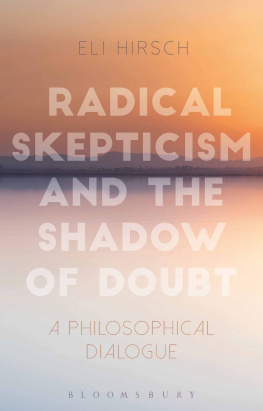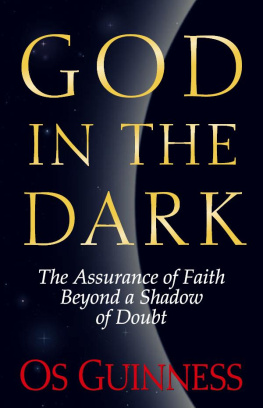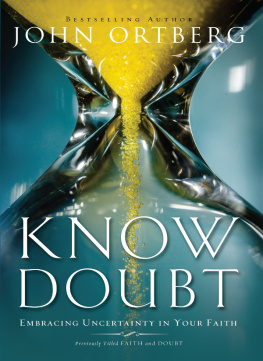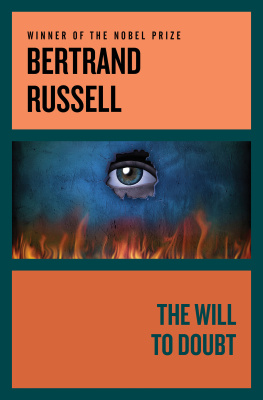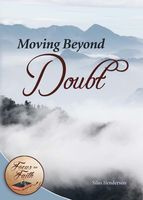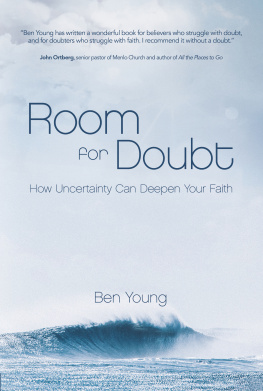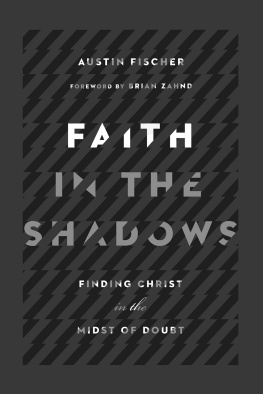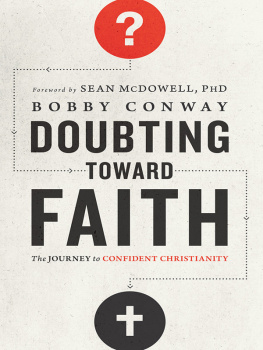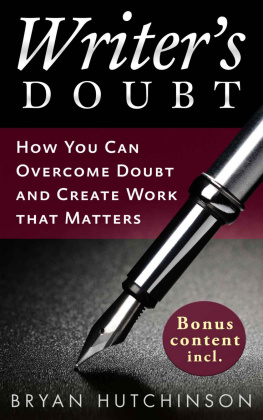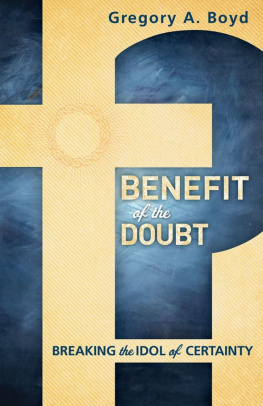
Radical Skepticism and
the Shadow of Doubt
ALSO AVAILABLE FROM BLOOMSBURY
The Bloomsbury Companion to Epistemology, edited by Andrew Cullison
Glimpse of Light, Stephen Mumford
Wittgenstein: The Crooked Roads, William Lyons

For Pam
CONTENTS
Some philosophers are familiar with this book under the title Epistemology Noir: A Philosophical Dialogue/Play on Skepticism about External Reality, which was its title for an extended period of time when I had it on my home page. Although for various reasons it seemed desirable to change the title, readers can be assured that the books noir-ness is intact and it remains a dialogue-play. It obviously has a lot more philosophy than a typical play, but it also has a lot more non-philosophical action than a typical dialogue. The hope is that the different aspects of this book, the pure philosophy and the rest, fit together to offer a novel perspective on how we might talk about skepticism.
I was helped by a number of people in arriving at the ideas in this book. Many years ago Dean Kolitch and I spent endless, endless hours talking about Cartesian skepticism, and the general spirit and mood of those talks haunt this work. I take responsibility, however, for any mistakes in here about whether the world exists.
Philosophical discussions with Berislav Marui helped me greatly as I was developing my ideas. Beri read and critiqued every page of successive drafts of the book, for which I am enormously appreciative. I am also exceedingly grateful to Jennifer Smalligan Marui and Dan Korman for detailed comments on the entire work.
For comments on parts of the work, I give sincere thanks to Georges Dicker, Matti Eklund, Billy Flesch, Eugene Goodheart, Pamela Hirsch, Matthias Jenny, Adam Leite, Miriam Schoenfield, and Palle Yourgrau.
And very special thanks to David Shatz for help with transliterations.
This book evolved over a number of years from several talks and papers with which many people helped me, most especially Georges Dicker and Beri Marui , as well as Jonathan Adler, Arudra Barura, Matti Eklund, Pamela Hirsch, Tom Kelly, Dan Korman, Adam Leite, Matt McGrath, Abe Roth, Jerry Samet, Ted Sider, Tim Williamson, Palle Yourgrau, and audiences at the philosophy department at Indiana University, at the Center for Philosophic Exchange at SUNY Brockport, and at the philosophy department at the University of Vermont.
I am greatly indebted to Jed Lewinsohn for helping me to find the right venue for this book. And Coleen Coalter at Bloomsbury Press provided exactly the venue that I wanted, for which I am very grateful.
Above all else, I thank Pam, Dena, and Suzanna for helping always to keep sanity within sight.
RADICAL SKEPTICISM
AND THE SHADOW
OF DOUBT: A
PHILOSOPHICAL
DIALOGUE
Characters, setting,
announcement
Act I. Vatols Anxiety
Act II. Vatol and Us
Act III. The Impossibility of Doubt
The characters are Lev, Yitzhak, and Daniel, three aging philosophy professors who occasionally return to Yeshiva to study Talmud.
The setting is one of the bathrooms of a certain Yeshiva in New York City, where they have repaired in order to clear up some matters.
Opening Announcement
This work revolves around three propositions: (a) I have reason to doubt external reality (this proposition is explained in I and debated extensively in II). (b) Nevertheless, it is (metaphysically) impossible, insofar as I am a self-conscious and sane being, for me to doubt that I have meaningfully interacted with other beings (this proposition is introduced in I and debated in III). (c) I am therefore subject to a distinctive form of epistemic anxiety, the object of which cannot possibly be faced or literalistically expressed (this proposition is discussed in I and in the final sections of III). The somewhat unorthodox style of the work is for the author associated in some ways with its content (see the section in I on the nature of this work).
Act I
Vatols Anxiety
[Yitzhak, Daniel, and Lev entering the bathroom.]
Yitzhak Yeah, maybe youre right. Maybe I lost it a little. But did you hear what this kid was saying? He was actually arguing that tenai le-mafrea should be viewed as a case of
Daniel You could have been more courteous, Yitzhak.
Yitzhak I said to him, Who the hell are you, a rabbinic reincarnation of Feynman?
Daniel Yes, Richard Feynmans picture of particles moving backwards in time. But you could have been more courteous. He is, after all, a student in this Yeshiva, we are merely visitors and guests But lets put that aside. Lev has asked us in here to discuss something related to philosophy.
Lev You must please pardon my somewhat uneasy English. I am still in the process of retrieving my American tongue.
Daniel Im sure it will improve as you go along. We could speak Hebrew or Yiddish with some difficulty, as the three of us sometimes did years ago when we first met at Berkeley, but thats not necessary. So what is on your mind, Lev?
Lev You had said, Danielthis was upon my recent arrival from Francethat in our reading group we shall do Descartess Meditations.
Daniel Yes, and you suggested, somewhat to my bafflement, that we combine this with discussion of the works of Thomas Nagel and Paul Feyerabend.
Lev Daniel, I resist to go back to thinking about the Meditations. Such thoughts of course arouse feelings of death. Of course one must not hide from these reflections.
The Cartesian reflection, if I may put it, is in essence this: I could possibly have been phenomenologically just as I am, throughout my entire existence, and yet completely deluded about the existence of all of the external facts that give meaning to my life. That would have been my situation if I had been deluded by Descartes demon, or in the au courant imageYes?if I had been a brain in a vat. It is the possibility of being utterly alone in this way that, if a person thinks seriously and honestly about it, threatens sanity.
It is certain that other philosophers must react this way to the Cartesian reflection. Yes? Though I can point to very few places where philosophers are willing to admit to having such experiences
Yitzhak You know, youre a real tummler, my friend.
Daniel Hold on, Yitz, lets hear what he is saying.
Yitzhak There are people all over the world who, for one reason or another, are actually abandoned to horrible solitude and loneliness. They dont have time for Levs so-called anxiety about Descartes Meditations.
Daniel Thats neither here nor there
Lev Yitzhak Ich mein
Yitzhak You know what you should do, Lev? You should have a Rabbi Lonely Hearts column for people who are lonely because they doubt that the world exists.
Daniel Listen, Lev, you mention two large topics, death and skepticism. Do you want to talk about both of them now? You know we have a limited amount of time here.
Lev Then I will stay with epistemology. But I think the topics are deeply related.
Daniel Sufficient unto each day the misery thereof, yes?
Yitzhak
It seems that these two great philosophers may perhaps convey that they were made anxious by their doubts
Next page
